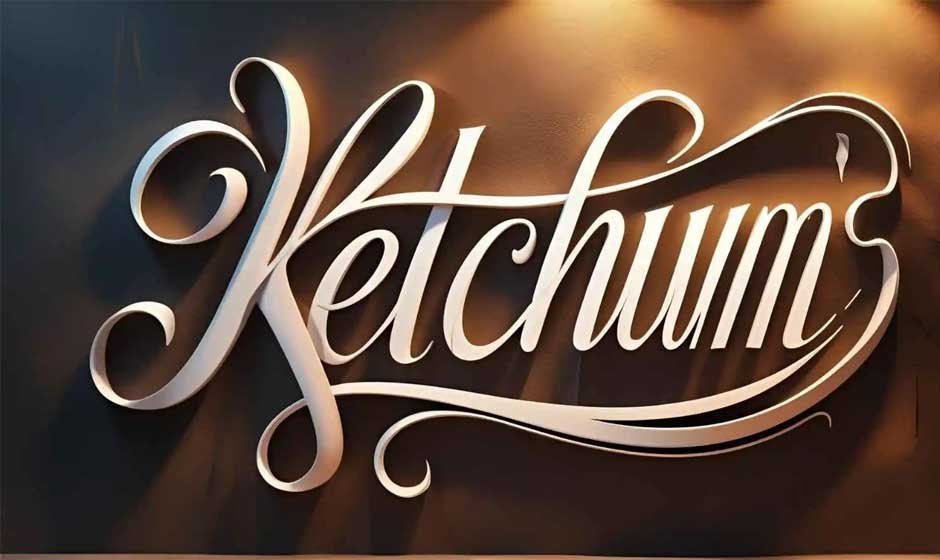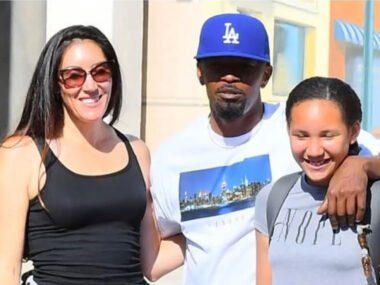What Does Ketchum Mean? Understanding This Unique Name
Ever wondered about the Ketchum meaning? You’re not alone. This intriguing surname has captured people’s attention for various reasons – from its medieval English roots to its modern pop culture fame through Pokémon’s Ash Ketchum.
Names tell stories, and Ketchum is no exception. Whether you’re researching your family tree, curious about the Pokémon connection, or simply love learning about name origins, the Ketchum meaning offers a fascinating journey through history, geography, and culture.
What makes this name particularly interesting is how it bridges different worlds. Medieval cooks, animated trainers, famous authors, and small American towns all share this common thread. Let’s dive into what makes Ketchum such a compelling name to explore.
The Historical Ketchum Meaning: Medieval English Origins
From Kitchen to Ketchum: The Occupational Connection
The Ketchum surname meaning traces back to medieval England, specifically to the Old English word “cycen.” This term related to cooking and kitchen work, making Ketchum an occupational surname – much like Baker, Smith, or Miller.
Back in medieval times, surnames weren’t just random choices. They served practical purposes in growing communities. If you were known for your cooking skills or managed a noble household’s kitchen, people would identify you by your profession. Over time, “cycen” evolved through various forms like “Kychene” and “Kechin” before settling into the Ketchum we recognize today.
This occupational origin tells us something important about early Ketchum ancestors. They weren’t just any kitchen workers – they likely held respected positions in medieval households. Managing a noble family’s kitchen meant overseeing food preparation, supplies, and staff. It was a position of trust and responsibility.
Where Did the Ketchum Family First Settle?
Historical records show the Ketchum family first put down roots in Lancashire, England. They maintained a family seat there for generations, with early mentions including Henry atte Kychene around 1300 and Richard del Kechin.
The Yorkshire Poll Tax Rolls from 1379 give us valuable glimpses into how the name appeared in different regions. We see Johannes del Kechyn, Johannes del Kuchyn, and Thomas del Kichyn – all variations of what would become Ketchum. These spelling differences weren’t mistakes; they reflected how people pronounced the name in different areas before spelling became standardized.
As England’s population grew and people became more mobile, the Ketchum family spread beyond Lancashire. Eventually, they crossed the Atlantic to colonial America, where new opportunities awaited and the family story would continue evolving.
The Pokémon Factor: How Ash Ketchum Changed Everything
The Genius Behind “Catch ‘Em”
In 1997, everything changed for the Ketchum name. The Pokémon anime introduced Ash Ketchum, and suddenly millions of kids worldwide knew this surname. But here’s the clever part – the creators didn’t choose “Ketchum” randomly.
The phonetic similarity between “Ketchum” and “catch ’em” was absolutely intentional. It perfectly captured the show’s central concept of catching and collecting Pokémon. Every time someone said “Ash Ketchum,” they were unconsciously hearing the franchise’s main message.
This wordplay reflects Japanese “dajare” – a tradition of clever naming. The creators needed an English name that would resonate with international audiences while keeping the adventurous spirit of the original Japanese character, Satoshi. Ketchum hit the bullseye.
The connection goes deeper than just sound. “Catch ’em all” became one of gaming’s most famous slogans. By embedding this concept into the main character’s surname, the creators ensured the show’s theme was literally part of his identity.
Pop Culture Impact on the Ketchum Name
Pokémon’s global success transformed Ketchum from a relatively unknown English surname into a name recognized worldwide. This shows how modern media can completely reshape how people perceive traditional names.
The character’s popularity has even spawned humorous cultural phenomena like “Ketchumism” – online communities playfully treating Ash Ketchum as a figure representing eternal youth and optimism. While obviously tongue-in-cheek, it demonstrates how deeply the character has penetrated popular culture.
For real people named Ketchum, this creates an interesting situation. Some embrace the Pokémon connection as a fun conversation starter. Others prefer highlighting their name’s rich historical background, seeing the anime association as just one layer of a much deeper story.
Geographic Connections: Places Named Ketchum
Ketchum, Idaho: Where Literature Meets the American West
No discussion of Ketchum meaning would be complete without mentioning Ketchum, Idaho. This small city of about 3,500 people has achieved outsized fame, largely thanks to its connection with Ernest Hemingway.
Hemingway spent his final years in Ketchum, attracted by its natural beauty and privacy. He completed his last work there and died there in 1961. Today, his grave in Ketchum Cemetery draws literature fans from around the world, making this small Idaho town a pilgrimage destination.
The city perfectly embodies the American West’s character – rugged outdoor recreation combined with sophisticated cultural appreciation. Visitors come for world-class skiing, fishing, and hunting, but also for the literary history and artistic community that Hemingway helped establish.
Ketchum serves as a gateway to the Sawtooth National Recreation Area, connecting modern tourism to the frontier spirit that originally drew settlers west. The town’s economy thrives on this blend of outdoor adventure and cultural significance.
Other Ketchum Locations Around the World
Ketchum, Idaho might be the most famous, but other places bear this name too. Ketchum, Oklahoma represents the name’s presence in the American South, while Lake Ketchum in Washington State adds a Pacific Northwest connection.
Even Antarctica features the Ketchum name through Ketchum Glacier and Ketchum Ridge. These remote features honor Commander Gerald L. Ketchum, who led the icebreaker USS Burton Island during Operation Highjump in the 1940s. It’s remarkable how individual achievements can permanently place family names on the world map.
Famous People Named Ketchum Throughout History
Historical Figures Who Made Their Mark
The Ketchum surname has been carried by people who made significant contributions across many fields. These individuals show the diverse paths Ketchum families have taken throughout American and international history.
In politics, William Ketchum served as Buffalo, New York’s 14th Mayor from 1844-1845, during a crucial period of urban growth. His leadership came when American cities faced rapid expansion challenges.
Military service runs strong in Ketchum family history. William Scott Ketchum served as a U.S. Army officer during the Civil War, helping preserve the Union during America’s most challenging period. Commander Gerald L. Ketchum’s Antarctic service continued this military tradition into the 20th century.
The arts have benefited from Ketchum contributions too. Country music singer-songwriter Hal Ketchum achieved recognition with his gold-certified 1991 album “Past the Point of Rescue,” showing how the Ketchum name could achieve contemporary prominence through artistic expression.
Modern Ketchum Name Bearers
Today’s Ketchum surname bearers continue making their mark across diverse fields – business, academia, entertainment, and public service. They maintain the achievement tradition that has characterized this family name throughout history.
This diversity reflects broader changes in American society, where opportunities have expanded beyond traditional boundaries. Modern Ketchums carry forward not just historical legacy, but also potential for future accomplishment across an ever-widening range of human endeavor.
How Ketchum Evolved: Spelling Variations and Language Changes
Regional Spelling Differences
The Ketchum surname’s evolution shows how fluid language can be. Historical documents reveal numerous spelling variations that emerged as the name spread across different regions: Kitchen, Ketchin, Kitching, Kitchiner, and Kitchener.
The relationship between Ketchum and Kitchen provides the clearest link to the name’s occupational origins. In some regions, families with these related surnames may share common ancestors, with spelling differences arising from regional dialects or how clerks interpreted spoken names.
Regional pronunciation played a huge role in these variations. Where certain consonant combinations were difficult to pronounce or uncommon in local dialects, record-keepers adapted spellings to match local speech patterns. This created a rich tapestry of related surnames all tracing back to similar occupational origins.
Modern Usage and Digital Age Connections
Today, the Ketchum surname maintains its distinctive character while adapting to modern contexts. The Pokémon association has introduced it to global audiences who might never have encountered it otherwise, creating new cultural connections alongside its historical significance.
Modern genealogical research helps Ketchum families trace lineages back to common ancestors, revealing connections spanning continents and centuries. DNA testing and digital record-keeping allow unprecedented precision in mapping family relationships.
The digital age has created new opportunities for Ketchum family members to connect and share heritage. Online genealogy platforms and social media groups foster communities where people bearing the Ketchum name can explore shared roots and celebrate diverse achievements.
The Complete Picture: What Ketchum Really Means Today
Understanding the Ketchum meaning requires appreciating its multiple layers. This name has successfully bridged centuries, cultures, and contexts while maintaining its distinctive character. From medieval English kitchens to modern pop culture, Ketchum shows how names evolve while preserving their essential identity.
The various meanings associated with Ketchum reflect our interconnected world’s complex cultural heritage. Historical etymology provides the foundation – grounding the name in specific times and places where real people lived and worked. Geographic connections add dimension, showing how names travel and take root in new locations.
Pop culture associations, especially through Pokémon, demonstrate how modern media can transform traditional names for new generations. Rather than diminishing Ketchum’s historical significance, these contemporary connections add fresh chapters to its ongoing story.
For people who bear the Ketchum name today, this rich heritage offers multiple sources of identity and connection. Whether emphasizing medieval occupational origins, celebrating geographic connections, or embracing playful modern associations, they participate in a continuing story spanning generations and continents.
The appeal of understanding name meanings lies in their ability to connect us to larger human stories. Exploring what Ketchum means reveals not just one surname’s story, but insights into how language evolves, cultures interact, and individual identities develop over time. The name Ketchum serves as a reminder that our identities come from multiple sources, and heritage isn’t fixed inheritance but living, evolving legacy that each generation helps shape.










